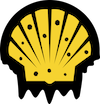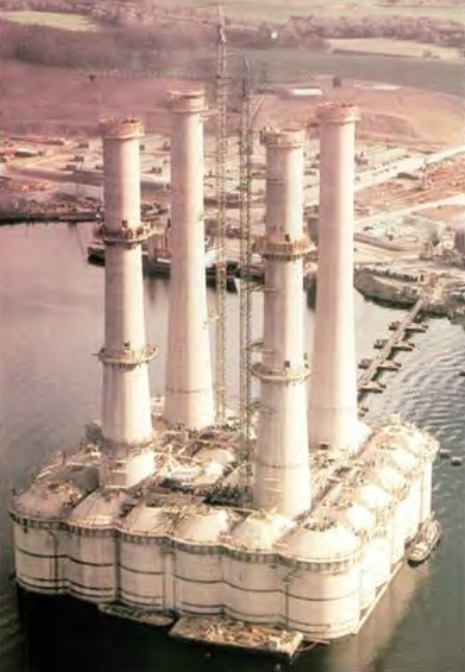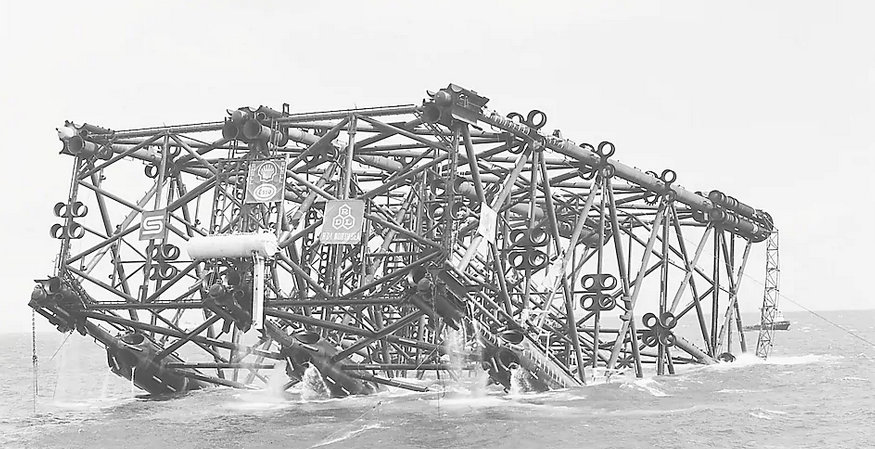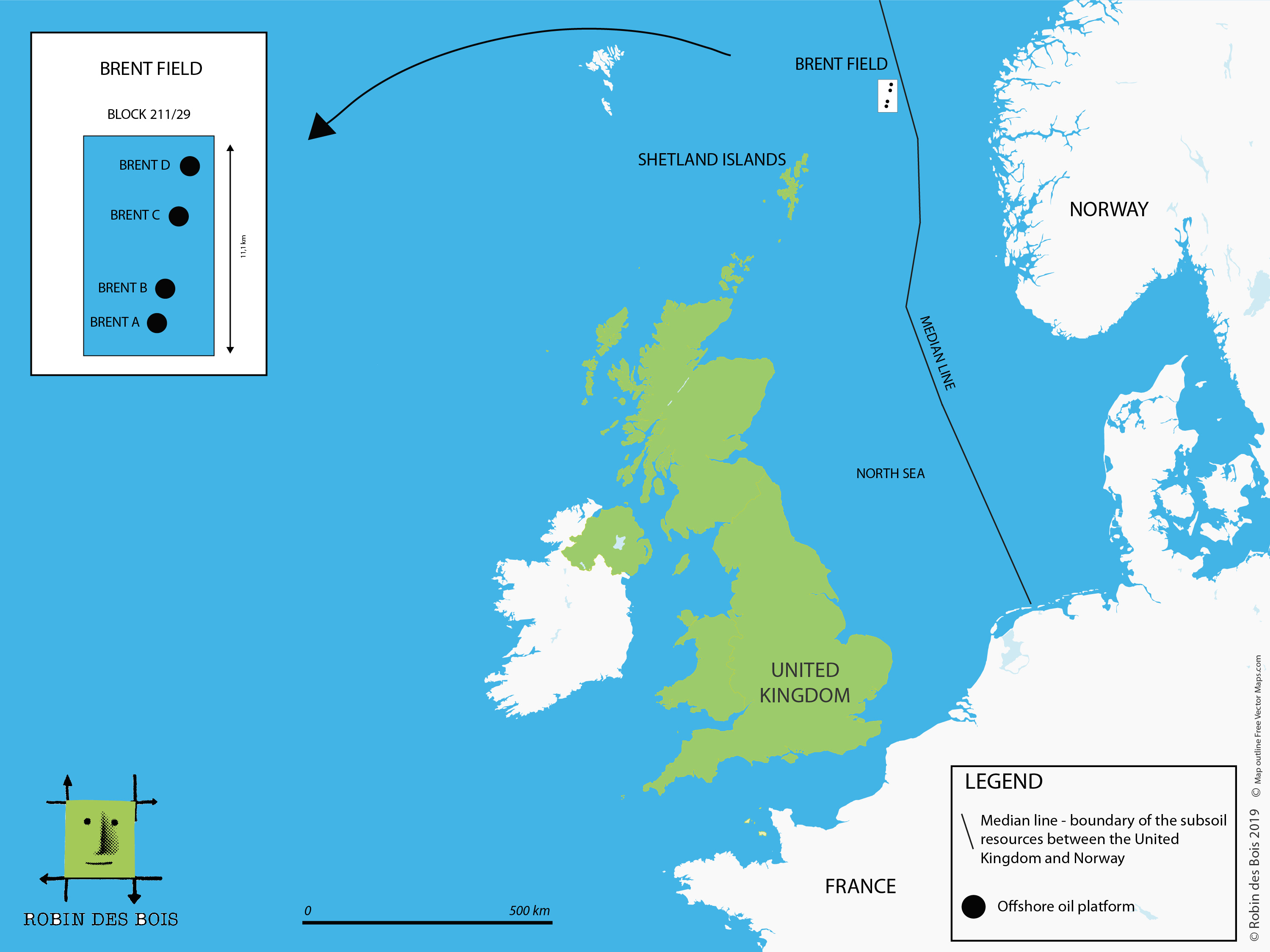Press release n°1
The first generation of offshore oil platforms is getting old and the oil fields are running dry. In the North and Norwegian seas, about a hundred platforms will be dismantled between now and 2030. In 2050, there will be 500 platforms waiting to be dismantled.
OSPAR Decision 98/3 on the Disposal of Disused Offshore Installations established a complete dismantling principle of offshore platforms. Yet derogations may be applied for. The devil is in the details. In February 2017, Shell asked the British government to be allowed to abandon its four Brent Field platforms, off the coasts of Shetland islands and Norway. Three of them are gravity based concrete platforms, the fourth one is a steel structure. Shell is only considering the dismantling and partial removal of emerging parts. The storage cells and underwater structures would be left in place.
According to Shell’s estimates, the remaining underwater cells hold about 70,000 tons of sludge contaminated by oil and chemical additives. The total quantity of oil would be of approximately 16,000 tons. The sludge is overlaid with about 640,000 tons of hydrocarbon-contaminated water (see graph). These figures could be largely underestimated. According to Shell’s scenario, the concrete cells will start cracking, scattering their hazardous materials on the seabed in about 150 years, and will collapse in a thousand years. The future generations will be grateful.
The four platforms were built and installed during the 1970/1980 decade. Shell has lost its memory and a large part of its archives. According to a Norwegian study*, materials used during construction and exploitation could comprise asbestos, lead, mercury, PCB or flame retardants. The concrete used for offshore platforms is reinforced with additives to resist to the corrosion of the marine environment. Lead use is strongly suspected.
The NGO Robin des Bois (Robin Hood) is categorically opposed to this derogation plan, even considering the UK’s agreement in principle. Granting the derogation to Shell could make for leaving in situ decommissioned oil and gas platforms the standard procedure in the North Sea and in the arctic and subarctic waters.
Deindustrialisation of the sea must be done as strictly as on land. It is not tolerable to leave in the sea steel and concrete structures full of waste harmful for the marine flora and fauna as well as dangerous for the maritime traffic. Shell considers the entire Brent field area to be a halieutical and maritime desert. It’s not the case and with global warming in sight, it is probable that entire population of fish and marine organisms will move north. Likewise, passengers and goods maritime traffic could intensify as well. This so-called desert could become a place of life and traffic. The residues and structures left by Shell and the other companies would represent a health risk for the fishes and a physical risk for the fishing and transport activities. The concrete footings of the platforms will rise up about 30m from the sea level. The lighted warning beacons planned by Shell would have to last a thousand years.
Leave a decommissioned oil platform in place means creating a new underwater polluted site.

* Inventory Mapping of Hazardous Materials Decommissioning of Oil & Gas Installations, Kjell Arne Skålevik Kværner Stord, 2016
https://www.oh2019.com/files/2015/08/3b-Inventory-Mapping-foredrag-final-kas.pdf
Note : OSPAR is an international cooperation convention created in 1972 to protect the marine environment of the North-East Atlantic. The European Community and fifteen countries are members : Belgium, Denmark, Finland, France, Germany, Iceland, Ireland, Luxembourg, the Netherlands, Norway, Portugal, Spain, Sweden, the United Kingdom. Finland, Luxembourg and Switzerland are Contracting Parties: the rivers that flow from or through them have an influence on the quality of the Atlantic’s marine waters. Robin des Bois has been an observer at the OSPAR Commission since 2005.
 Imprimer cet article
Imprimer cet article












